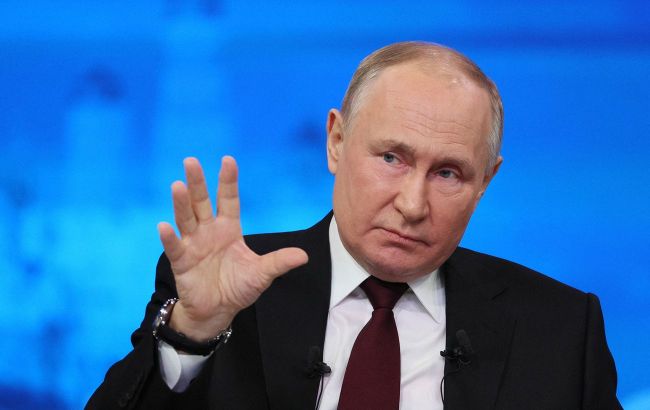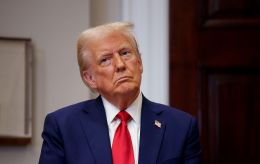Putin bets on dragging out the war, but analysts say there's a problem
 Photo: Vladimir Putin, Russian president (Getty Images)
Photo: Vladimir Putin, Russian president (Getty Images)
Russian president Vladimir Putin is relying on a war-winning theory in which Russian forces will slowly advance until Ukraine and its military are exhausted. However, the Kremlin will face serious challenges in executing this plan, according to ISW analysts.
According to the Institute for the Study of War, over the past year, the West has failed to persuade Putin to reconsider his strategy for victory in the war against Ukraine.
Putin's public statements suggest that he still believes Russian forces can win a war of attrition by gradually advancing along the front line, without being constrained by time.
Analysts noted that during the St. Petersburg International Economic Forum in June 2024, Putin clearly articulated his theory of victory.
According to this theory, Russian troops would continue to make slow but steady gains, hinder Ukraine from launching successful offensives with operational significance, and ultimately win through attrition.
"Putin's assessment that gradual Russian gains will allow Russia to achieve his goals in Ukraine is predicated on the assumption that Ukrainian forces will be unable to liberate any significant territory that Russian forces seize and that the Russian military will be able to sustain offensive operations that achieve gradual tactical gains regardless of heavy losses," ISW assessed.
This interpretation was reinforced by Putin's June 19, 2025 press conference at SPIEF, where he reaffirmed this strategy a full year after publicly presenting it.
Essence of Putin's theory
Experts believe that Putin's theory of victory relies on critical assumptions about Ukraine's capabilities and the durability of Western support, factors that the West still has the ability to influence.
According to this strategy, Russian and pro-Russian forces aim to leverage their personnel and resource advantages to wear down the Ukrainian Armed Forces, while preventing Ukraine from reclaiming any territory of operational or strategic value.
However, ISW argues that in the medium term, Russia will face significant challenges in its economy and defense industry that will hinder its ability to sustain a prolonged war.
Analysts note that rising oil prices, driven by Israeli strikes on Iran, could boost Russian revenues and strengthen its ability to finance the war.
But this would only hold if prices remain high and no new international sanctions are imposed on Russian oil.
"Increased Western military aid and economic instruments can enable Ukrainian forces to maintain pressure on the battlefield and exacerbate Russia's economic issues, leveraging Russia's weaknesses to achieve a strong negotiating position for Ukraine and the West and extract critical concessions from Russia to bring about a lasting and just end to the war," ISW concluded.
Reflexive control
Experts also pointed out that during the June 19 press conference, Putin claimed that the potential transfer of German Taurus missiles to Ukraine would allegedly not affect the battlefield, but would cause serious damage to German-Russian relations.
ISW recalled that Kremlin officials have repeatedly made similar and false claims suggesting that Western weapons cannot change the situation on the ground.
"Putin's statements are part of the Kremlin's ongoing reflexive control campaign that aims to push the West to make decisions that benefit Russia, such as by refraining from providing further assistance to Ukraine or stopping efforts to increase NATO's defensive capabilities," ISW believes.
Finally, at the same press conference, Putin said he was open to resuming dialogue with Germany about Ukraine - but only under certain conditions.
He also dismissed reports of Russia preparing for an attack on Europe or NATO countries, calling them lies.

